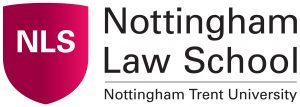Level(s) of Study: Professional
Start Date(s): January 2024
Duration: Three months
Study Mode(s): Part-time
Campus: City Campus
Why choose this course?
You will be a holder of IPReg’s Higher Courts Litigation Certificate by assessment or “passport” and either you want to exercise advocacy rights beyond those given by that certificate, or even if not, you want to develop a deeper understanding of civil evidence and civil advocacy in IP Litigation. If the answer to either of the above is “yes” then the IP Higher Courts Advocacy Certificate (“HCAC”) course is for you.The aim of the course, and assessment, is to ensure that you have the necessary skills to develop as an advocate once you have completed the course and the assessment, and to justify the grant of higher court advocacy rights under section 2.2(c) of the IPREG Certification Rules 2012 (“the 2012 rules”).
Why study at Nottingham Law School?
Advocacy is a skill that is developed over time, with support and constant feedback from fellow advocates. NLS is committed to the “learning by doing” approach to legal education, which is a theme common to the Professional Certificate in Trade Mark Practice and the Intellectual Property Litigation Course, which leads to an award under section 2.2(b) of the Certification Rules. The focus is not on how quickly the qualification can be obtained, but the extent to which the new advocate feels prepared to use the rights, once qualified.The course has been designed to factor in the space and time needed to develop both the necessary knowledge base and practical skills over a period of three months from enrolment to assessment. This is achieved by using a blend of synchronous and asynchronous teaching for both the advocacy and evidence parts of the programme.You will work though material released on the NLS Virtual Learning Environment, NOW, in your own time, and prepare for both the written and practical aspects of the course. You must engage with a variety of podcasts, film clips, and guided reading in civil evidence, ethics, and advocacy skills, so that online and face to face teaching can focus on practical skills. You will also complete several self-test exercises online, as well as preparing for live seminars either on MS Teams, in the case of the evidence and ethics programme, or face to face during the advocacy element of the course.Nottingham Law School offers Certificates in:
- IP Basic Litigation Skills*,
- IP Litigation and IP Advocacy* and
- Higher Courts Advocacy*.
*The three courses are accredited by the Intellectual Property Regulation Board (IPReg). The courses must be completed in order.Successful completion of these courses enables you to obtain all three of the IPReg certificates granting you rights to litigate intellectual property matters before the civil courts of England and Wales.The three courses are operated under the aegis of the Intellectual Property Regulation Board (IPReg). The content of the skills and substantive subjects is prescribed by outcomes drafted by IPReg. Nottingham Law School is approved and accredited by IPReg. The tuition, together with the form and content of the assessment regime, is monitored rigorously by internal and external examiners.
Intellectual Property Regulation Board Litigation Rights:
- To litigate or act as advocate before the Intellectual Property Enterprise Court or a County Court, or to appeal from the IPO to the High Court, Patent Attorneys and Trade Mark Attorneys need an “Intellectual Property Litigation Certificate”. This certificate is issued by IPReg. Nottingham Law School provides a course for those wishing to have these rights.
- To act as advocate in intellectual property matters before other civil courts, Patent Attorneys and Trade Mark Attorneys need a “Higher Courts Advocacy Certificate”.
The HCAC course is designed for:
- Patent Attorneys and Trade Mark Attorneys who hold the Higher Courts Litigation Certificate.
What you’ll study
Successful completion of these courses enables you to obtain all three of the IPReg certificates granting you rights to litigate intellectual property matters before the civil courts of England and Wales.
- Induction
- Stage one – Professional Conduct, Civil Evidence, Trial Preparation & Procedure
- Stage two – Higher Courts Advocacy Skills (Intellectual Property) Programme
How you’re taught
We will be delivering the IPHCAC course using a blend of online and face to face learning.
Assessment methods:
- Evidence, Procedure & Ethics Written Examination Paper
- Oral Advocacy Assessment
Assessment dates:
- Evidence, Procedure & Ethics Written Paper: To be confirmed
- Advocacy Assessment: To be confirmed
Click below to find out more about the entry requirements and enrolment dates.

